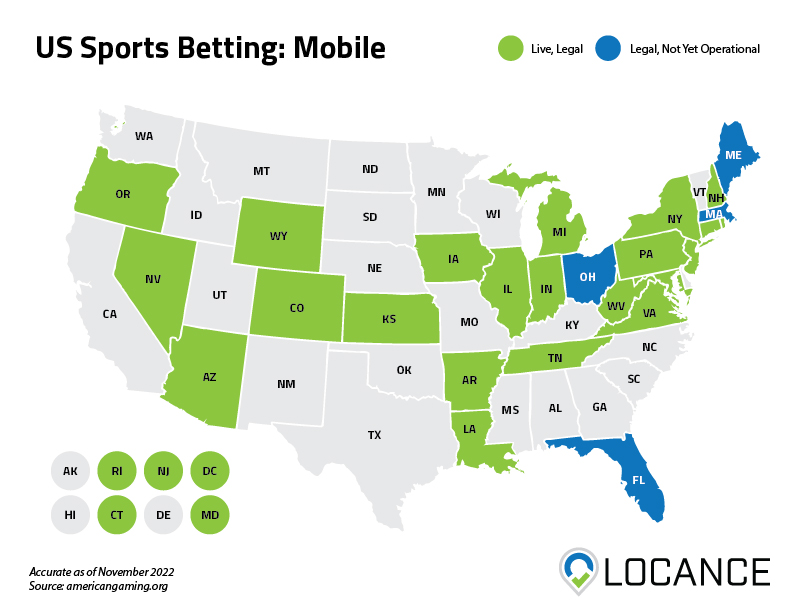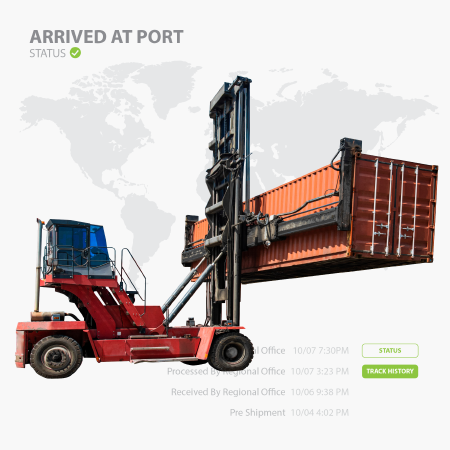Geolocation for Gaming Compliance
October 28, 2022

Online gaming is booming and is expected to grow to become a 320 Billion dollar global industry by 2026. To get their piece of the pie, Gaming operators must comply with national and state or provincial regulations. Navigating the evolving legislation and advances in technology are critical to identifying and avoiding compliance risk. Operators need to be aware of the industry changes that are constantly developing.
What is gambling compliance?
Geolocation compliance is the process of Gaming operators confirming that players access and use services while following industry and regulators rules and guidelines. It includes all steps necessary to legally operate multi-jurisdictional online gambling and gaming operations from verifying location to safeguarding players’ financial transactions.
Why do operators need to know about gaming compliance?
Responsibility for internet gambling compliance falls squarely on the operator and their designees, including compliance, security, and privacy officers. Rules and regulations are constantly evolving and changing, so staying abreast of the regulatory landscape is critical.
Can operators use location-as-a-service to achieve compliance?
It’s up to the operator to comply with online gaming rules by jurisdiction and jurisdictions have borders. Location-as-a-service uses cloud-based geolocation determination to confirm compliance, ensuring that the gamers are where they are allowed to wager.
How has compliance technology changed the global gaming industry?
Today’s mobile devices allow sophisticated live experiences – AR/VR technology offers immersive play anywhere and anytime. High-speed connections have paved the path for faster, more responsive live games, and fans can place wagers in real time via sports betting apps and websites. Technology has redefined what’s possible with internet gaming and the means of addressing geographic and other compliance mandates.
For platform operators, cloud computing via the network further improves data processing and storage capability without a warehouse full of servers and hard drives. Technology provides the same compliance capability online that security staff offers a brick-and-mortar casino.
Is gaming compliance changing the reach of online gaming?
Since the US Supreme Court lifted the federal ban on sports betting in 2018, more than thirty states and the District of Columbia now permit some form of mobile or online sportsbook. These are the states that currently allow mobile gambling:

- Arizona
- Arkansas
- Colorado
- Connecticut
- District of Columbia
- Illinois
- Indiana
- Iowa
- Louisiana
- Michigan
- Nevada
- New Hampshire
- New Jersey
- New York
- Oregon
- Pennsylvania
- Rhode Island
- Tennessee
- Virginia
- West Virginia
- Wyoming
Others have legislation pending. Each state issues licenses based on its unique regulatory developments causing the platform operators to implement state-by-state methodologies to comply.
In addition to geographic restrictions, core requirements for businesses include assets sufficient to pay winnings and the technological capability to safeguard player privacy, protect financial data and comply with anti-money laundering, anti-terrorism, and gambling addiction statutes. The risks of non-compliance are profound. Business owners face a personal background check and must provide financial reports, credit scores, and bank statements as requested — life becomes an open book for gaming operators.
How is location-as-a-service helping?
Jurisdictionally focused compliance rules are applied by location-as-a-service solutions to validate gamers based on their location and other available connection and device attributes. Location-as-a-service also provides a reference point for monitoring the origination of high volumes of financial transactions.
Creating a Gaming Compliance-Ready Platform
Successful online gambling platforms need a clear, risk-based compliance strategy, that includes:
- Risk Assessment and Privacy Training for Staff – Training staff in privacy guidelines, identification of network entry points, and prioritization of risk factors maximizes security. Detailed and periodic training can help companies be responsive to global gambling industry changes.
- Compliance Audits – Regular and vigorous audits find weak points before they can be exploited. No plan is foolproof so constant checking of vulnerabilities is a must.
- Management Oversight – Mobile gaming operations are extensive and multidimensional. A single voice in charge unifies individual efforts. Hiring a Chief Compliance Officer is suggested.
- Security and Privacy Officers – Security and privacy are the two most significant compliance concerns in online gaming. An officer for each provides sufficient oversight and a system of checks and balances.
- User/Patron Location – Following strict jurisdictional rules is a must. There’s no practical substitute for robust geolocation services.
Why location?
Platforms must operate within a state’s borders to comply with each jurisdiction’s rules and compliance requires verification of the gaming location. Automatic verification of the device location means faster confirmation of compliance and more transactions. Transaction volume equals profits.
How does Locance help with mobile gaming compliance?
Locance offers a comprehensive, real-time cloud-based multi-source geolocation service for online gambling, sports betting, and internet casino platforms. Our secure, enterprise-grade APIs are used by operators as part of their compliance with regulations.
Using trusted and secure location determination, Locance offers the following for Gaming Operators:
- Location Verification: Determine if players are in or out of a valid jurisdiction for immediate transaction approval
- Geographic Reach: Extend on-site wagering to mobile to maximize total allowable wagering area
- Compliance: Comply with regulation for national, in-state or on-site transaction verification
- Security: Provide “green light” transaction approval and block suspicious activity
- Gamer Invitation: Notify users when in an allowed area to use your application
- Personalization: Tailor communications to users where and when they are receptive
How is a gamer’s location validated by Locance?
Some of the technologies Locance has pioneered to verify location include:
- IP Address – While a ubiquitous solution for online device location, the increasing use of other connections such as satellite, mobile gateways, and anonymous proxies make it undependable on its own. In certain jurisdictions, IP address alone is not sufficient to confirm user location.
- Browser Location – Browser location technology gathers location data from mobile and desktop devices using Wi-Fi, Cell site, GPS, and other signals to determine the best available location.
- Mobile App Location – Through a sophisticated SDK for use in iOS and Android apps, operators may access the most precise location information available along with device insights to assess its trust level.
- Device Profiling – The Device Profiling technology analyzes device attributes, connection details and behavioral heuristics to identify suspicious configurations, anomalous conditions, and use patterns that could signal fraudulent activities. It’s future-proof technology available through the power of the cloud.
- Geofencing – Locance’s Smart Zone technology allows operators to determine whether a device is within an authorized area with confidence based on the device location, its accuracy, boundary conditions, and local regulatory needs.
About Locance
Locance is the leader in geolocation compliance for gaming and lottery. We have helped global operators in the US, Canada and Europe to verify user transactions and get the “green light” to place wagers and enjoy their mobile gaming experience.
Learn how Locance helps with Internet Gaming Compliance and grab our Mobile Gaming Product Brief.
Find out how our customers get compliant with geolocation regulations. Read our Mobile Gaming White Paper.








